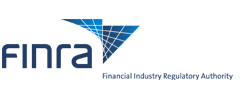
FINRA Publishes Guidance, Text for New Rule Governing Deferred Variable Annuity Transactions
Washington, DC — The Financial Industry Regulatory Authority (FINRA) today published guidance to firms on a new rule covering transactions in deferred variable annuities. FINRA Regulatory Notice 07-53 outlines the provisions of Rule 2821, which will become effective on May 5, 2008.
Deferred variable annuities are hybrid investments containing both securities and insurance features. They offer choices among a number of complex contract options, which can be confusing for both the individuals who sell them and customers who buy them. FINRA developed Rule 2821 to enhance broker-dealers' compliance and supervisory systems and provide more comprehensive and targeted protection to investors who buy or exchange deferred variable annuities.
Rule 2821 imposes requirements in four main areas.
Registered Representative Requirements for Recommended Transactions
When recommending a deferred annuity transaction, a registered representative must:
- Make a reasonable effort to obtain and consider various types of customer-specific information, including age, income, financial situation and needs, investment experience and objectives, intended use of the deferred variable annuity, investment time horizon, existing assets, liquidity needs, liquid net worth, risk tolerance and tax status.
- Have a reasonable basis to believe the customer has been informed of the material features of a deferred variable annuity, such as a surrender charge, potential tax penalty, various fees and costs, and market risk.
- Have a reasonable basis to believe that the customer would benefit from certain features of deferred variable annuities, such as tax-deferred growth, annuitization or death or living benefits.
- Make a customer suitability determination as to the investment in the deferred variable annuity, the investments in the underlying sub-accounts at the time of purchase or exchange, and all riders and other product enhancements and features contained in the annuity contract.
- Have a reasonable basis to believe that a deferred annuity exchange transaction is suitable for the particular customer, considering, among other factors, whether the customer would incur a surrender charge, be subject to a new surrender period, lose existing benefits, be subject to increased fees or charges, and has had another exchange within the preceding 36 months.
Principal Review and Approval Obligations for All Transactions
The new rule requires a registered principal to review and determine whether to approve the customer's application for a deferred variable annuity before transmitting the application to the issuing insurance company, but no later than seven business days after the customer signs the application. A principal must treat all transactions as if they have been recommended for purposes of review and can approve the transaction only if it is suitable based on the factors that a registered representative must consider when making a recommendation. However, the principal may authorize the processing of the transaction even if he or she does not approve it based on suitability if, but only if, the following two determinations are made: (1) the transaction was not recommended and (2) the customer, after being told why the principal found it to be unsuitable, still wants to proceed with the purchase or exchange.
Firm Supervisory Procedures
Rule 2821 requires broker-dealers to establish and maintain written supervisory procedures reasonably designed to achieve compliance with the rule's standards. That includes requirements that the broker-dealer implement surveillance procedures to determine whether any brokers have rates of effecting variable annuity exchanges that might evidence misconduct, and have policies and procedures in place to address inappropriate exchanges.
Firm Training Program
The new rule requires firms to create training programs for registered representatives who sell deferred variable annuities and for registered principals who review deferred variable annuity transactions.
The full text of Rule 2821 is available at www.finra.org/notices/07-53.
FINRA, the Financial Industry Regulatory Authority, is the largest non-governmental regulator for all securities firms doing business in the United States. Created in 2007 through the consolidation of NASD and NYSE Member Regulation, FINRA is dedicated to investor protection and market integrity through effective and efficient regulation and complementary compliance and technology-based services. FINRA touches virtually every aspect of the securities business—from registering and educating all industry participants to examining securities firms; writing and enforcing rules and the federal securities laws; informing and educating the investing public; providing trade reporting and other industry utilities; and administering the largest dispute resolution forum for investors and registered firms. For more information, please visit our Web site at www.finra.org.
